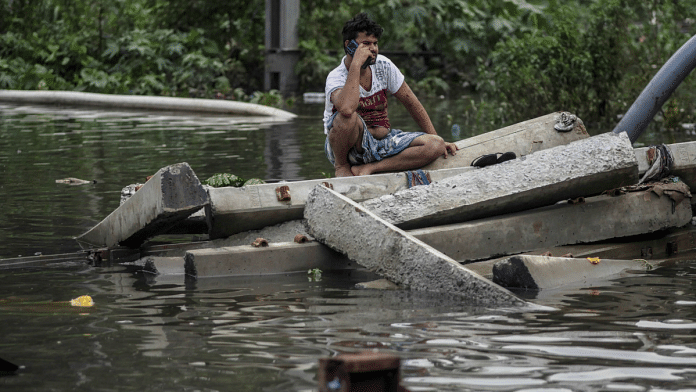New Delhi: As many as 220 leading medical journals across the world — including The Lancet, The New England Journal of Medicine, The British Medical Journal and The National Medical Journal of India — have simultaneously published an editorial calling for world leaders to take emergency action to limit climate change and protect health for the first time ever.
“Reflecting the severity of the moment, this Comment appears in health journals across the world. We are united in recognising that only fundamental and equitable changes to societies will reverse our current trajectory,” the editorial, published Monday, reads.
According to a statement by The Lancet, the editorial comes ahead of the UN General Assembly, scheduled for 14 September, and the climate change conference COP26 in Glasgow, UK, in November.
It urges all countries to deliver enhanced and ambitious climate plans to honour the goals of the Paris Agreement, specifically attempting to keep the global temperature rise below 1.5 degree Celsius.
The note, penned by the editors-in-chief of these journals, warns that the greatest threat to global public health in the future is the continued failure of world leaders to take adequate action on the rise in global temperature.
According to the editorial, the impact of climate change also disproportionately affects the most vulnerable, such as ethnic minorities, poorer communities and those with underlying health conditions.
“In particular, countries that have disproportionately created the environmental crisis must do more to support low-income and middle-income countries to build cleaner, healthier, and more resilient societies,” it says.
It further warns that while recent targets to reduce emissions and conserve nature are welcome, they are not enough.
The journals also urge governments to intervene to transform societies and economies by supporting the redesign of transport systems, cities, production and distribution of food, markets for financial investments and health systems.
Such investments, according to the editorial, will produce positive benefits, including high-quality jobs, reduced air pollution, increased physical activity and improved housing and diet.
Also read: Almost half the world’s children are at a threat from climate and environmental shocks
Low-income countries disproportionately burdened
In a statement released by the journal editors, Richard Horton, Editor-in-Chief of The Lancet, said that addressing the climate crisis is one of the greatest opportunities to advance the well-being of people worldwide.
“The health community must do more to raise its critical voice in holding political leaders accountable for their actions to keep global temperature rises below 1.5°C,” Horton said.
Lukoye Atwoli, Editor-in-Chief of the East Africa Medical Journal, noted that low-income countries disproportionately bear the burden of climate change.
“While low and middle income countries have historically contributed less to climate change, they bear an inordinate burden of the adverse effects, including on health. We therefore call for equitable contributions whereby the world’s wealthier countries do more to offset the impact of their actions on the climate, beginning now, and continuing into the future,” Atwoli, one of the authors of the editorial, said.
Meanwhile, Fiona Godlee, Editor-in-Chief of The BMJ, said that wealthier countries need to do more to support countries that already suffer from high temperatures. “2021 has to be the year the world changes course — our health depends on it,” she added.
According to Peush Sahni, Editor-in-Chief of the National Medical Journal of India, the recent examples of extreme weather across the world have brought climate change to the fore.
“We must act now lest it is too late. We owe it to the future generations,” said Sahni in the statement.
(Edited by Rachel John)
Also read: Amazon habitats are shrinking due to increasing forest fires & deforestation, study says



